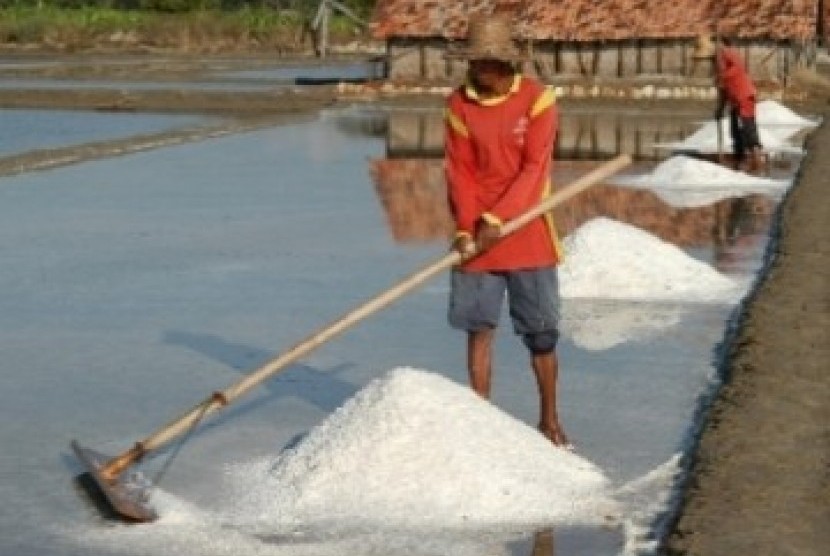REPUBLIKA.CO.ID, JAKARTA -- The government needs to further improve its policy on salt imports, particularly for salt used for industrial purposes and in the food industry, after the trade minister issued a decree on the subject last December.
"The government needs to protect all sides (industry and farmers). It has to seek best solutions for both, industry and salt farmers, so that salt business runs well, benefiting both parties," Achmad Budiono, the president director of the state-owned salt company PT Garam, said in Jakarta on Monday.
The trade minister had issued a decree No. 125/M-DAG/PER/12/2015 on salt imports. Signed on December 29, 2015, the decree stipulated that salt for industry could be imported by firms which owned a producer importer identity number (APIP).
Industrial salt importers are not allowed to sell the salt to consumers in regular markets or change the ownership of the imported salt to other parties.
"The problem is that all industrial salt users are allowed to import salt but they are not allowed to sell it. Certain provisions in this regulation are not clear because salt can be imported through many entry points. It should ideally be done through only one gate," noted Achmad.
This is a problem for industrial salt users whose number is small. Achmad said his side has made several proposals to solve the problem.
"The problem is that the number of industrial salt users is small. It is impossible for them to establish their own import divisions. They prefer the registered importer (IT) mechanism. So, the IT mechanism should be maintained to accommodate the interests of the small number of industrial salt users," remarked Achmad.
He also expressed the hope that the government would stop the import of industrial salt for various food products because the need of the food industry for salt could still be met through domestic production.
"The import of salt for various food products should be stopped. Food products could be included in the consumption cluster, not in the industry group. In the past, it was possible for the locally produced salt to meet the needs of various food product industry," stated Achmad.
He said the various food producing industrial units were included in the industrial salt user cluster when import of industrial salt was on the rise, while, in fact, local salt was able to meet the need.
Now, about 80 percent of the farmers' salt is absorbed by the domestic salt factories. Local salt could be supplied to various food product industrial units.
"If the trade minister's decree No. 125/2015 is implemented, the food product industry will not purchase salt from the local farmers because imported salt is cheaper.
If there is no purchase, local salt factories will go bankrupt. So, the salt farmers will be at a disadvantage," said Achmad.
Data at the PT Garam showed that the national need for salt has reached 4.04 million tons per annum. It consisted of 1.3 million tons of consumer salt and 2.74 million tons of industrial salt.
Salt imported for industry included 2.14 million tons for chemical industry (ACP), 1,000 tons for pharmacies and 40,000 tons for oil mining.
"It is not a problem for the chemical industry to import 2.1 million tons of salt, but various food producing units' need can be met by the locally produced salt," said Achmad.



